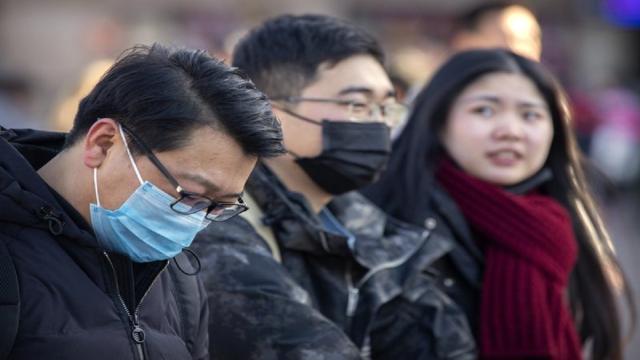Children are, fortunately, far less likely to fall severely ill from the novel coronavirus than older generations—but the pandemic has, nevertheless, upended their lives in a way that will have repercussions for years to come. 1.4 billion children, around the world, are living in lockdown due to the coronavirus outbreak, and 91 percent of students have had their education interrupted. A prolonged school shutdown could see children lose as much as a full academic year of progress—not to mention the psychological [VIDEO] effects it may have.
While their parents are wrapped up in working from home, children out of school have lost the nexus of their social lives—and their most important support network.
At a time when children are confronted by a multitude of stressors—anxiety over the virus’s spread, decreased household income for many, and isolation from their extended family—they’re kept away from the peers and trusted teachers who normally help them work through their worries.
Screen time may have gotten a bad rap over the past couple of years, but it’s now serving a vital function for quarantined children. From apps specially designed to foster long-distance friendships to virtual zoo tours, technology is the one thing allowing young people to lead semi-normal lives in these trying times.
A new way of learning
The coronavirus pandemic is putting distance learning through a trial by fire, and early efforts haven’t been without hiccups.
In Virginia’s Fairfax County, one of the largest school districts in the United States, administrators had to temporarily halt online classes after a disastrous start to the week. Tech problems prevented the online learning system, Blackboard, from working as anticipated. Worse yet, virtual classrooms quickly became hotbeds of harassment and profanity as intruders were able to access the classrooms’ group chats.
While educators around the world are ironing out these kinks, a number of online learning platforms have stepped up to provide free tools and curricula. Khan Academy, for example, has been around for a while, offering video lectures, essays and practice problems on subjects ranging from basic arithmetic to electrical engineering.
The platform has now gone a step further, providing bespoke learning plans, suggested daily schedules and reading lists for each age group.
Khan Academy’s courses have always been free—but even paid learning platforms are opening up in these unprecedented circumstances. Thanks to donations, including from the videoconferencing app Zoom, Outschool is offering free live courses over video chat. Live courses are particularly valuable during this period of shuttered schools, as they allow for back and forth rather than students passively consuming content. The startup is also partnering with individual schools to train teachers in how to plan and give lessons online—whether through Outschool or any other platform.
Keeping in touch
Ensuring that youth don’t become a “lost generation” with significant academic deficits is obviously a critical part of mitigating the impact of school closures. But it’s equally important to replicate the rich social life that is usually carried out on the playground and in the classroom. Interacting with peers not only builds social skills but also facilitates cognitive development.
There are a number of Apps specifically designed to help young people keep in touch from afar. French startup Yubo, for example, has 28 million users, and its mission of helping youth make genuine friendships from a distance seems tailor-made for the current crisis. Young people have started some 30 million live video streams on the app—a number that’s sure to soar as interest in the livestreaming format spikes among people in quarantine.
Most importantly for busy parents unable to monitor Generation Z’s digital activities as closely as they might like, Yubo has developed creative safety features to ensure that its users aren’t exposed to harmful content. Chief among these is a carefully calibrated algorithm which can tell when users are inappropriately dressed in a livestream—at which point moderators intervene, first by warning users and by shutting down the stream if need be.
Yubo caters to young people aged 13 to 25—in fact, the app uses Yoti age verification to ensure that people outside this age range aren’t able to join—but younger children are staying in touch with their friends, thanks to Facebook Messenger Kids. The product, dubbed “technology with training wheels”, has been around since December 2017, but its popularity has soared over the past couple of weeks.
Facebook normally requires users to be 13 or older, but the age-appropriate version of its popular messaging app allows children to text or video chat their friends using their parents’ accounts.
Virtual vacations
Sticking to a routine, complete with contact with friends, is essential to replicate the “school experience” as much as possible online. Breaking up the routine with fun activities to replace lost field trips and holidays is just as important.
The world-famous San Diego Zoo has set up a special portal for children, with live webcams of its animals alongside activities like coloring book pages. For those who would rather be twenty leagues under the sea, NOAA has uploaded a series of virtual scuba dives, which can be viewed normally on a smartphone or computer—as well as paired with a virtual reality headset for a particularly immersive experience.
Over 2,500 museums, meanwhile—including famed gems like Paris’s Musée d’Orsay and the Hermitage in St. Petersburg—are showcasing their collections on Google Arts and Culture.
Scrolling through an art exhibit will never be the same as standing in front of the paintings, just as apps like Yubo and Facebook Messenger Kids won’t stop young people from looking forward to the day when they can see their friends again in person. Technology, however, is an integral part of minimizing the effects that this pandemic has on youth.
![Technology is playing an increasingly vital role in young people's lives. [Image Source: Pxhere/Creative Commons] Technology is playing an increasingly vital role in young people's lives. [Image Source: Pxhere/Creative Commons]](https://staticr1.blastingcdn.com/media/photogallery/2020/4/21/660x290/b_502x220x82/technology-is-playing-an-increasingly-vital-role-in-young-peoples-lives-image-source-pxherecreative-commons_2446101.jpg)



